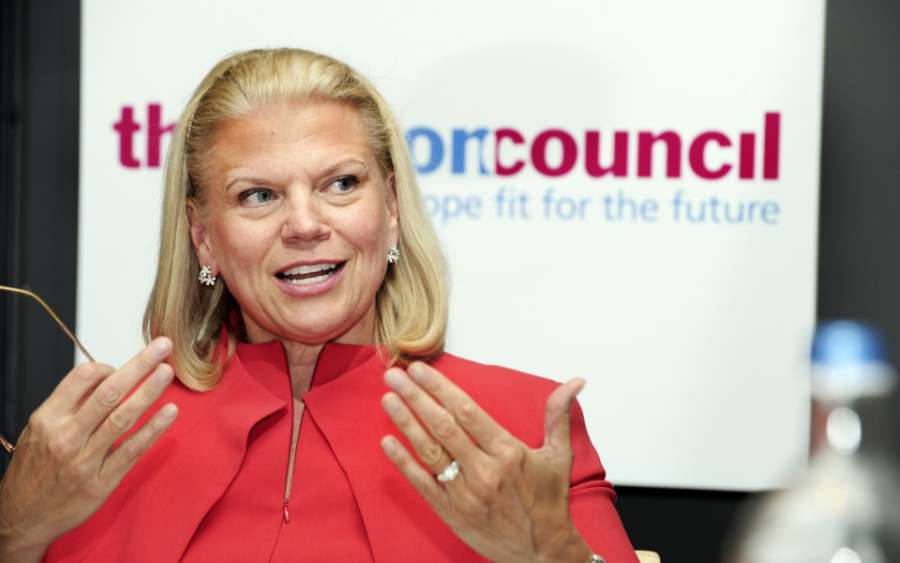In the age of information, technological innovation not only helps companies reap record profits but also greatly improves the welfare of people around the world. In particular, artificial intelligence (AI) holds immense promise. The Watson AI technology of International Business Machines (IBM ) remains a leader in the AI tech race. Many competitors are also experimenting with AI.
IBM's Watson is essentially a question answering computer system that can answer questions in natural language. Originally developed for competing in Jeopardy!, Watson became famous after defeating former champions in 2011. Since then, IBM has been using Watson's AI capabilities to address diverse social and technological problems.
In late October, IBM's chief executive Virginia Rometty discussed the broad consumer impact of Watson in a Wall Street Journal interview. She explained that a recent deal between IBM and General Motors (GM ) would create smart cars that can order coffee and remind drivers of tasks. Watson can also analyze "the world's diary," an archive of everything in the last five years, to understand how people feel, which is useful for entertainment and medicine. She also discussed the ethics of AI and argued that job losses from AI will help further global education and that Watson needs training and supervised learning, unlike a classic rogue superintelligent machine. Finally, Rometty stated that IBM would be used by over a billion people by 2018.

© Lisbon Council / Flickr.com
Since the interview, Watson has undergone more developments. In November, IBM showed off Watson at the first Watson Developer Conference, in hopes of attracting top software developer talent and differentiating itself from competitors. On December 1, IBM and Pfizer (PFE ) announced a partnership in order to accelerate and improve cancer drug research and development. Specifically, the two companies will collaborate on immunotherapy, an innovative approach that uses the immune system to fight disease. In the Watson for Cybersecurity program, 40 organizations will rely on Watson to prevent cybercrime. Watson will supplement humans and help save time in cybersecurity responses. And just last week, the General Manager of IBM Watson David Kenny told a story of how Watson helped save the life of a Japanese woman with leukemia by analyzing her genomic sequence. He expressed hope that Watson would not only help cure cancer but also get to understand individual patients and their needs better.

© vectorfusionart / Shutterstock.com
Of course, IBM is not the only company pursuing AI. Watson's competitors include tech giants like Google (GOOGL ), Amazon (AMZN ), Microsoft (MSFT ), and Baidu (BIDU ). Google's DeepMind AI program already made headlines this year after it taught itself the complex board game Go and defeated top player Lee Sedol in a tournament. In November Amazon launched the Amazon AI platform and three new services of image recognition, text-to-speech, and conversational applications. Microsoft's Project Oxford, recently released a facial recognition algorithm to be used with Windows phones. And the Chinese firm Baidu has created Minwa, a formidable rival to Watson, which is exploring deep learning, ad-bidding, natural language processing, image recognition, and philanthropy.
IBM's Watson and other companies' AI programs are pursuing seemingly unconnected projects, but the end goal is to help society solve problems in new ways. As the AI arms race increasingly heats up, it will become more clear that we are living in a unique time, in which technological advancement will change everything.
The author does not hold any positions in any of the stocks above.
















